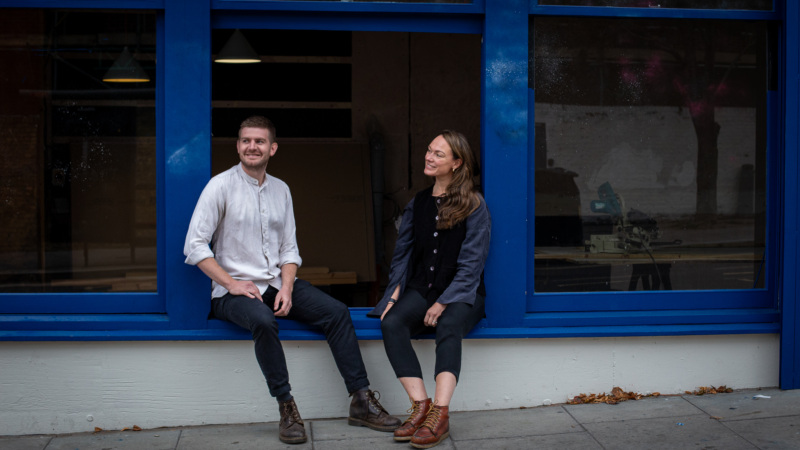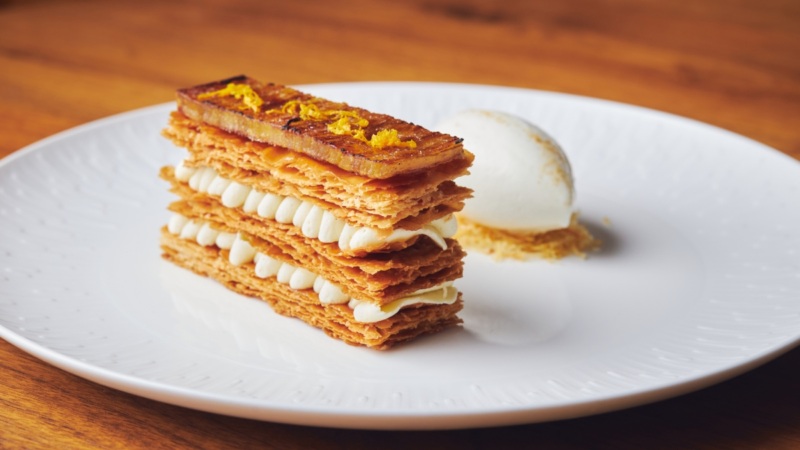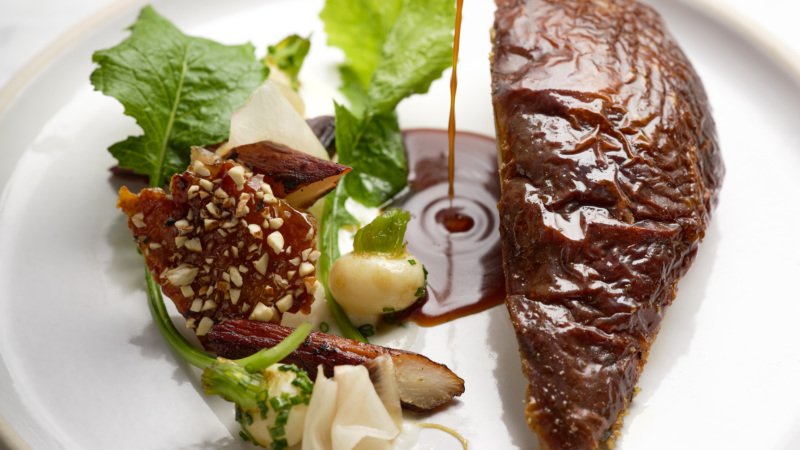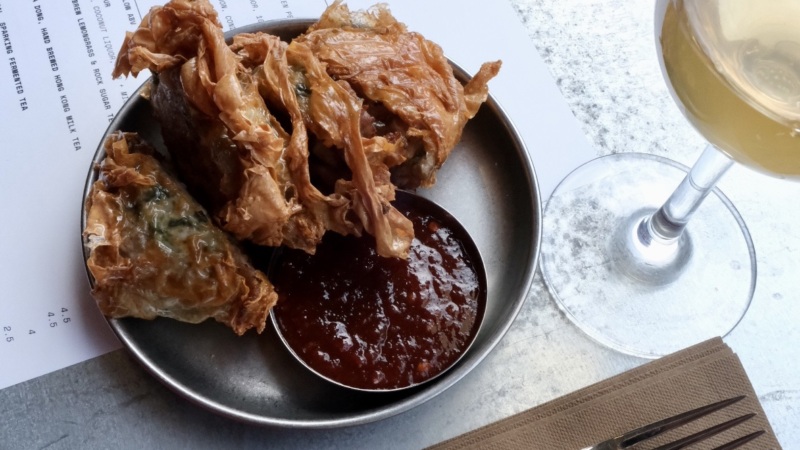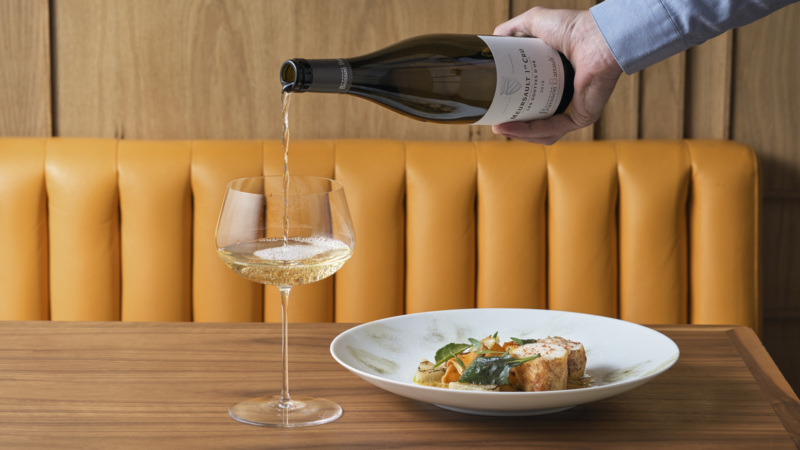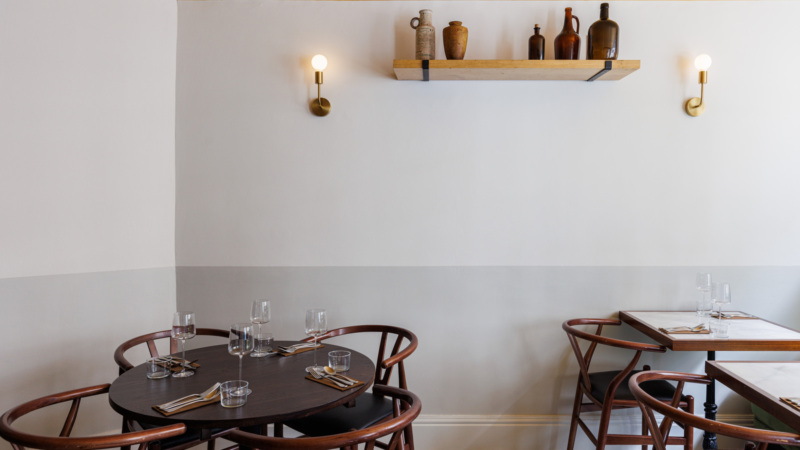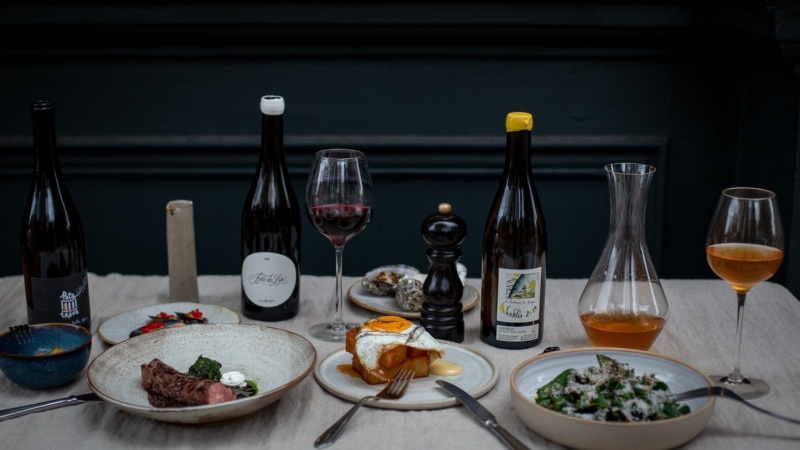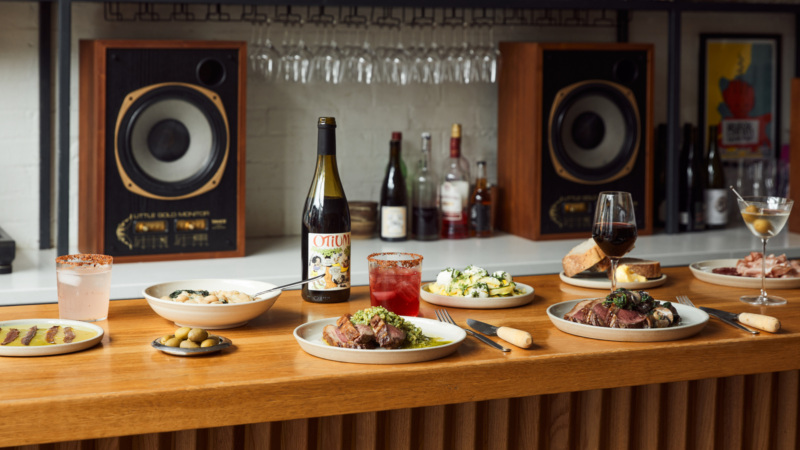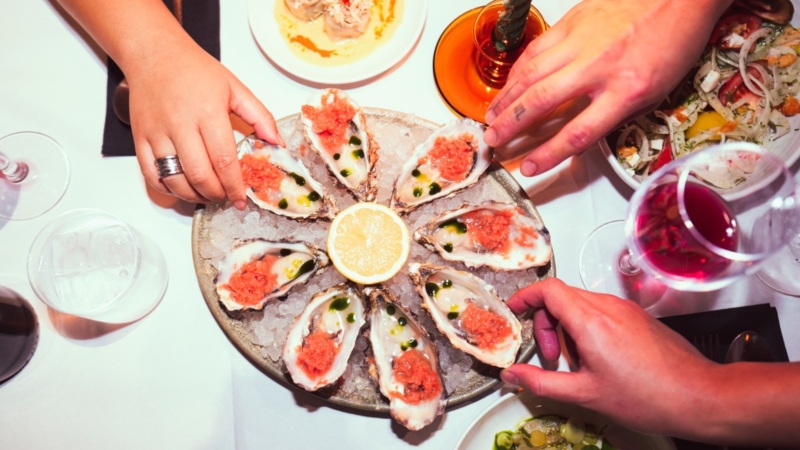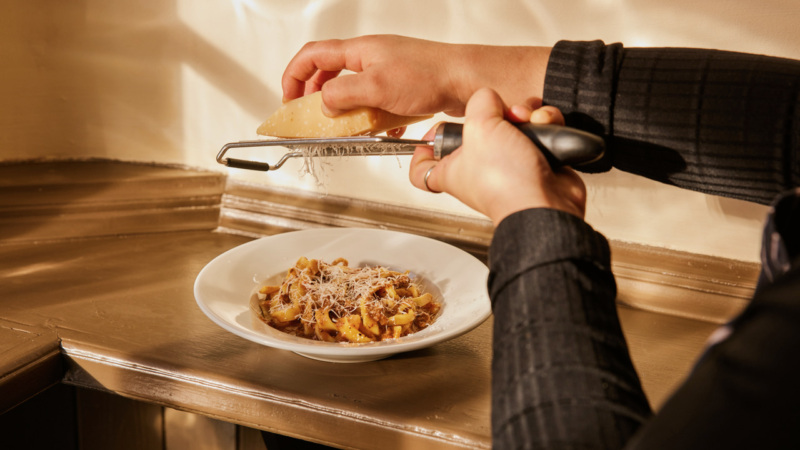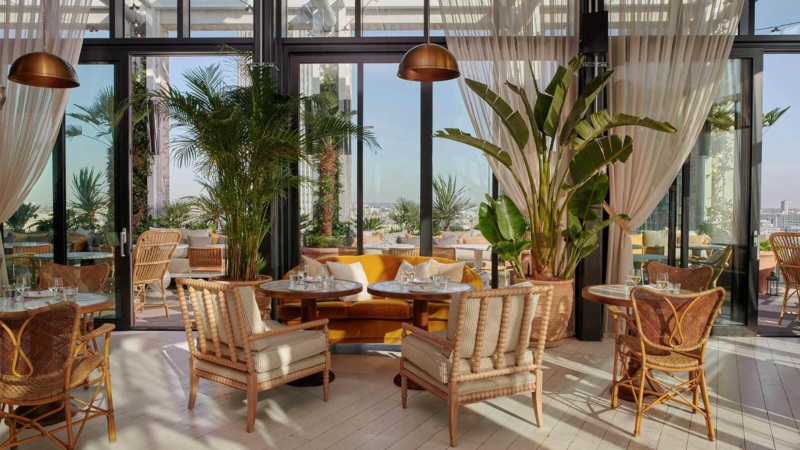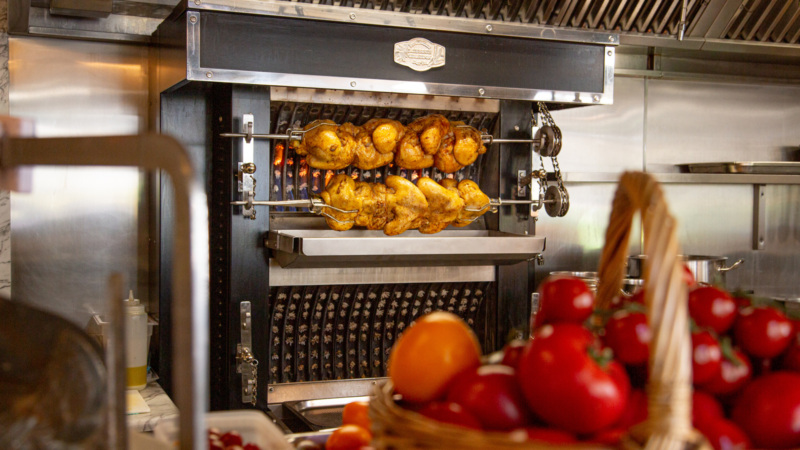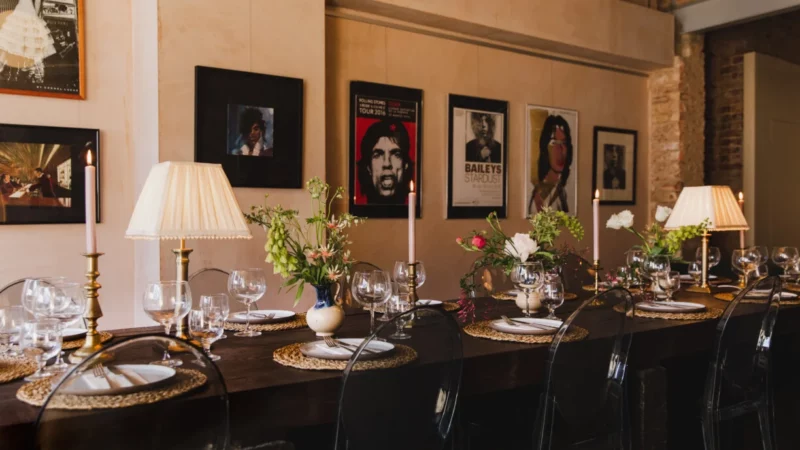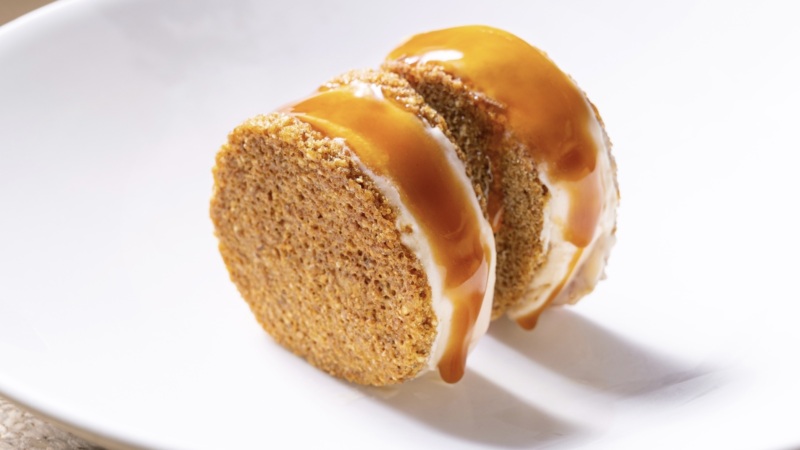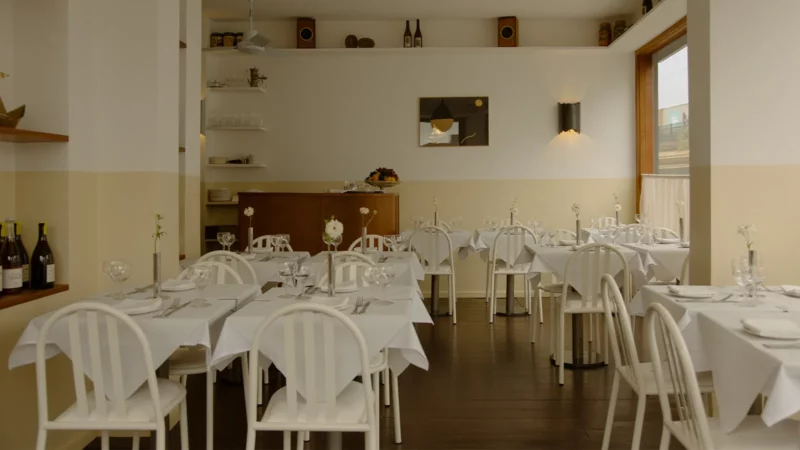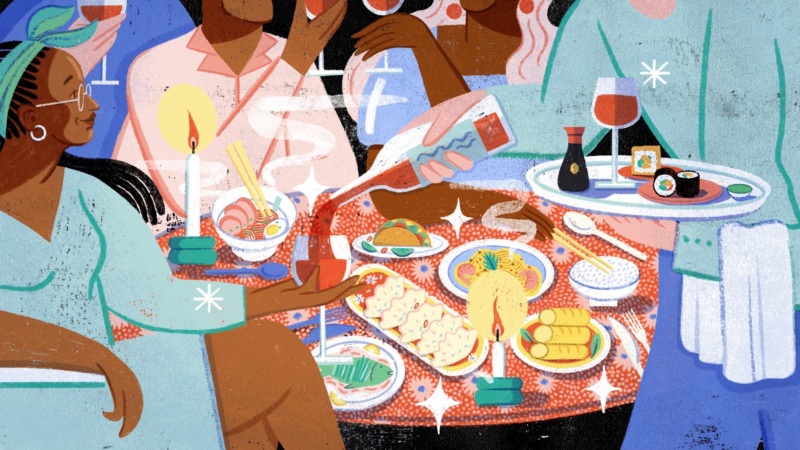
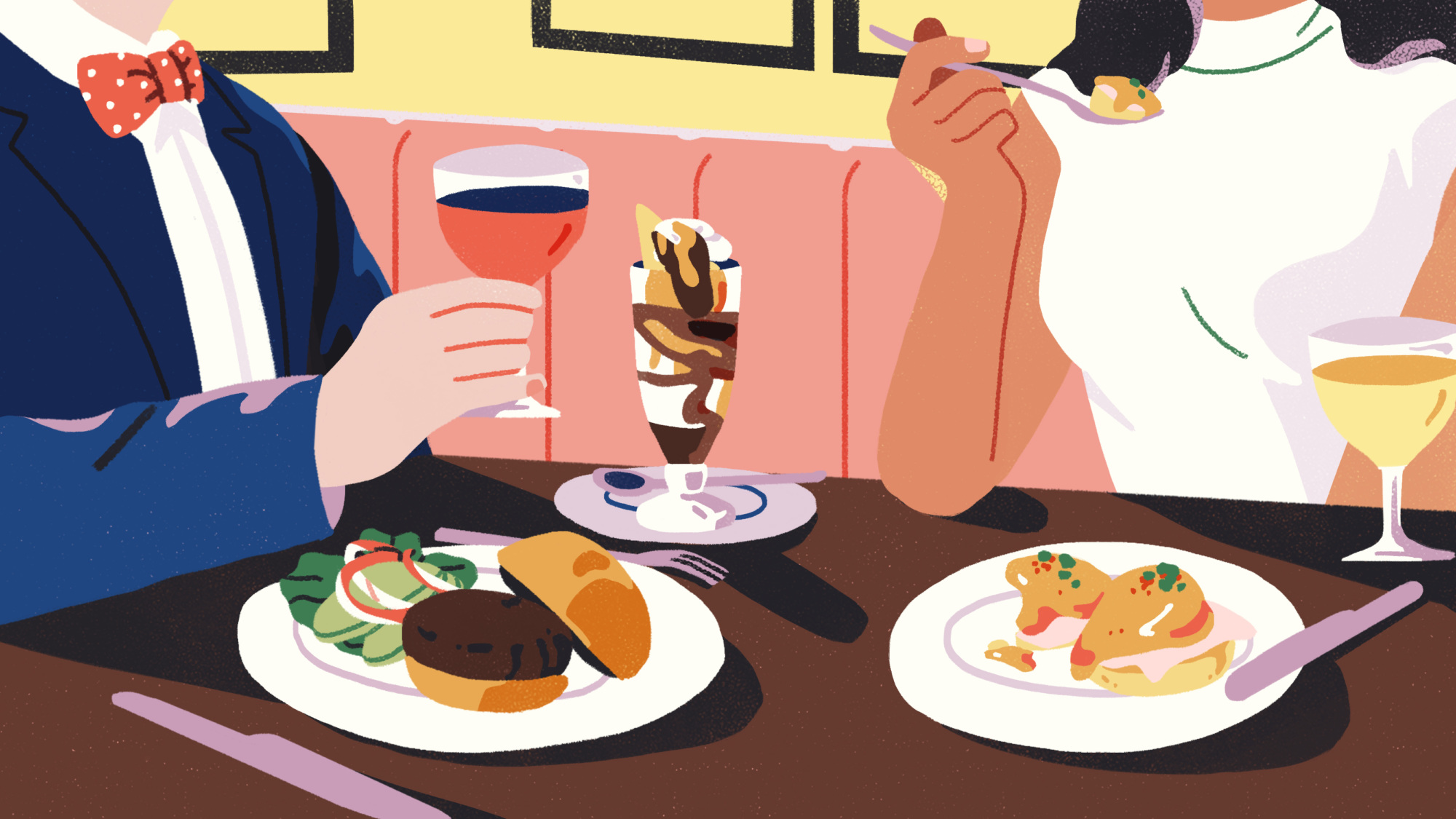
The first time I accompanied my friend, the food critic and travel writer A.A. Gill, to a restaurant he was going to review, I arrived early and asked the maître d’ for Mr. Gill’s table. They didn’t have any reservations for Mr. Gill, the man stammered, his face turning a strange colour. ‘Are you sure,’ I queried innocently, ‘I’m sure he said 1pm?’ Only when the maître d’ intuited that he’d seat me pretty much anywhere I wanted so he could run down to the kitchen and issue a code red, did I realise I’d made a mistake.
When Adrian sauntered in five minutes later, I apologised for my gaffe – of course he wouldn’t have booked under his own name. Out of curiosity, what name had he booked under? ‘Al,’ Adrian replied, ‘I book a lot of tables under Al.’ For someone so feared in the kitchen, Adrian was a spectacular joy to be around. ‘Al who?’ I asked, ready to commit the name to memory so as not to slip up next time. He scanned the menu. ‘Qaeda,’ he said, looking up at me. ‘Obviously.’
I was lucky to eat with Adrian many times; in Auckland on a literary festival junket, in Sydney (one of the world’s most incredible food cities); once, racing through Singapore’s Changi Airport with only 20 minutes to catch our flight to said junket, he insisted we stop for satay; and in London, often. Adrian loved the grand old café atmosphere of all of London’s Corbin & King restaurants, but whenever I was in town, more often than not, we’d meet at Colbert. We’d order the burgers, in those days off the menu but made specially for Adrian (when I went without him, I’d ask for the Adrian burger) with delicious soft brioche, cheese melted to exactly the right temperature (not so hot it burnt the roof of your mouth and not so lukewarm that it flopped sadly over the patty) with fries alongside mayo, mustard – Adrian always asked for French and English – and ketchup.
When I gave up eating gluten for a period, I would order the eggs Benedict with the gluten-free muffin and Adrian would watch me, pityingly, shaking his head. He’d text me fairly indecipherable text messages – you had to learn to read Adrian – but on Colbert days, they were just a word long: Lunch?
I would arrive first. When Adrian reached, he would survey the table; if I’d already wolfed down the bread, often forgoing the knife and just sticking the bread itself in the salted butter to scoop up as much as possible, he would sit down, and smile. ‘What have you given up eating now?’
There was always something.
Adrian, who famously ate everything, things most of us would keep as pets or sign petitions to protect, would nod and sigh before picking up the menu. You will have dessert, won’t you? We always had dessert. Coupe Amandine for me; pistachio, hazelnut and almond ice cream with whipped cream and butterscotch sauce (I’d given up chocolate), and two scoops of something less fussy for Adrian.
Long before Adrian was my friend, I’d read him. I had all his books on my shelves in Karachi and would buy the blacked-out copies of GQ, sanitised by a heavy-handed Pakistani censor, to read his latest travel dispatches. As a writer he was blade sharp, alert to everything all at once, flirtatious on the page, and could be wounding if he didn’t like something. In life he was sensitive and patient. He taught me about food – taking me shopping to Waitrose when I said I wanted to learn how to make croissants to make sure I’d buy the right kind of butter and yeast (eventually, he sent me to the Delauney to do a night shift with the touriers) – and listened to every writing I idea I had, cheering on first drafts and ideas that no one else would get behind. Are you baking again? He would ask me on FaceTime calls if I looked or sounded slightly down. You know only depressives and Victorians bake?
When Adrian died suddenly, his body attacked seemingly overnight by a malevolent cancer, everything I loved about London was extinguished. Going to restaurants to watch him order just about every plate on the menu only for one bite – he would have two if he was unsure – hanging around patiently as he swooned over some new suit fabric at Anderson & Shepard (when we arrived in Auckland, British Airways had lost both our suitcases and we took a taxi to a mall to buy some emergency clothes. I went to the local equivalent of The Gap, Adrian went to Ralph Lauren), going to Daunts to talk about books, dissecting every title, shelf by shelf. When Adrian was no longer there, I understood what an extraordinary gift it had been to meet a friend for lunch – to have the time, the privilege, the familiarity of a place that knew what mood you were in based on what you ordered. Colbert somehow always knew.
Adrian died so gently. Not his disease, that was brutal and swift and ravaging, taking him from healthy to sunken, his face hollowing into itself, in weeks. He was as gentle as he had always been when he was leaving the world. I knew the first time I went back to Colbert, it would be unbearable to eat with someone who wasn’t Adrian, someone who didn’t enjoy the simplest of hamburgers as though it were a luxury meal, someone who didn’t know what I felt about gluten or chocolate at any given moment in time depending on what I ordered. In the days after Adrian was gone, I wouldn’t eat all day, and would walk for hours all over London, furious and sad. After I had worn myself out, I would go to Colbert, alone, and sit in a booth in a bar area by myself and have a full dinner, tasting every little bite. They always gave me a table and always respected my lonely vigil.
After a while, I started meeting friends there again. The last time I went, I felt a strange flutter of sadness when I saw hamburgers on the menu. But I was not prepared for how much I would miss, all these years later, those one-word text messages. Lunch?
Fatima Bhutto is the author of works of fiction and non-fiction, most recently the novel The Runaways and New Kings of the World, a narrative reportage on globalisation and popular culture. Follow her on Instagram. Follow Resy, too.

